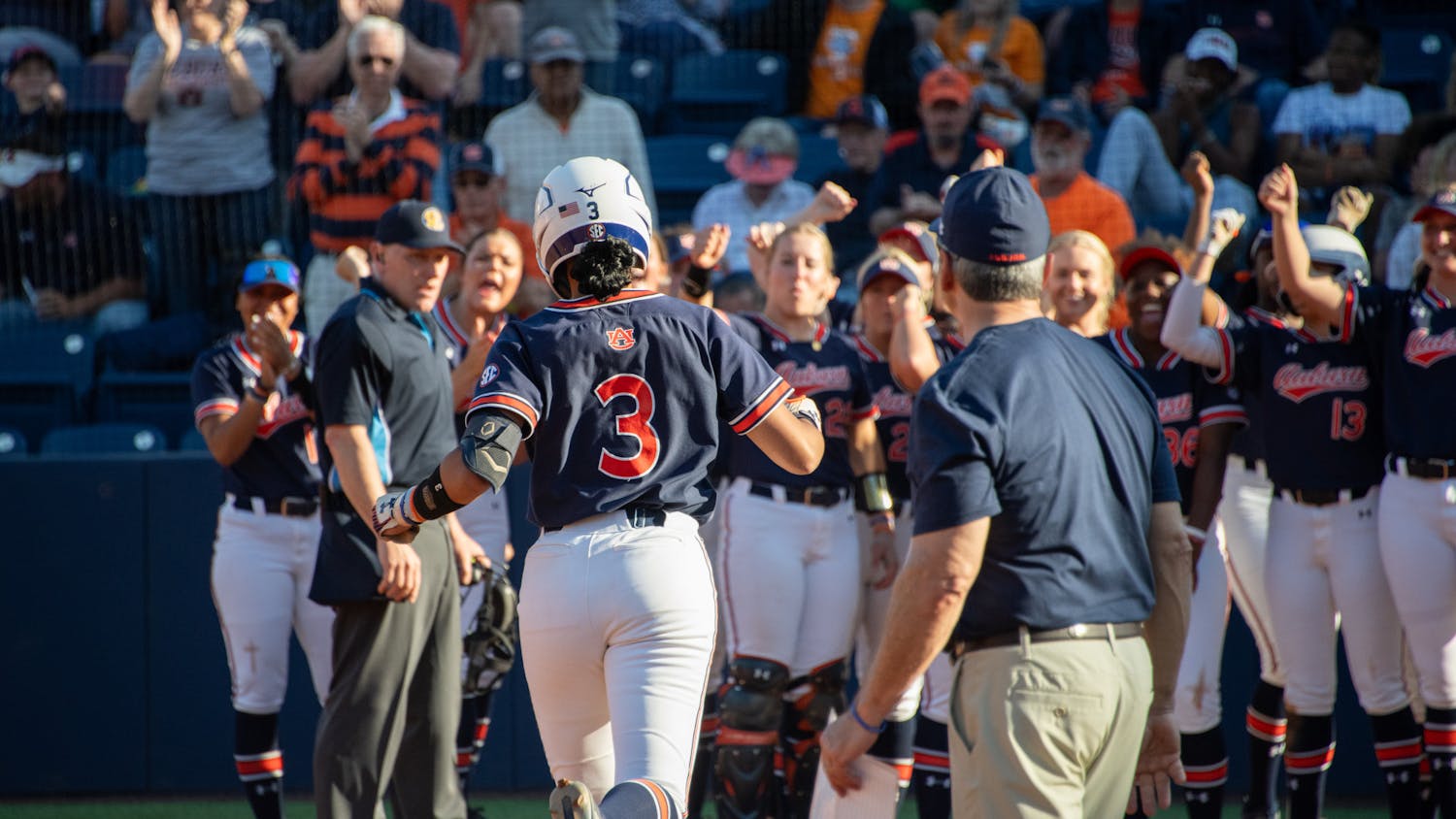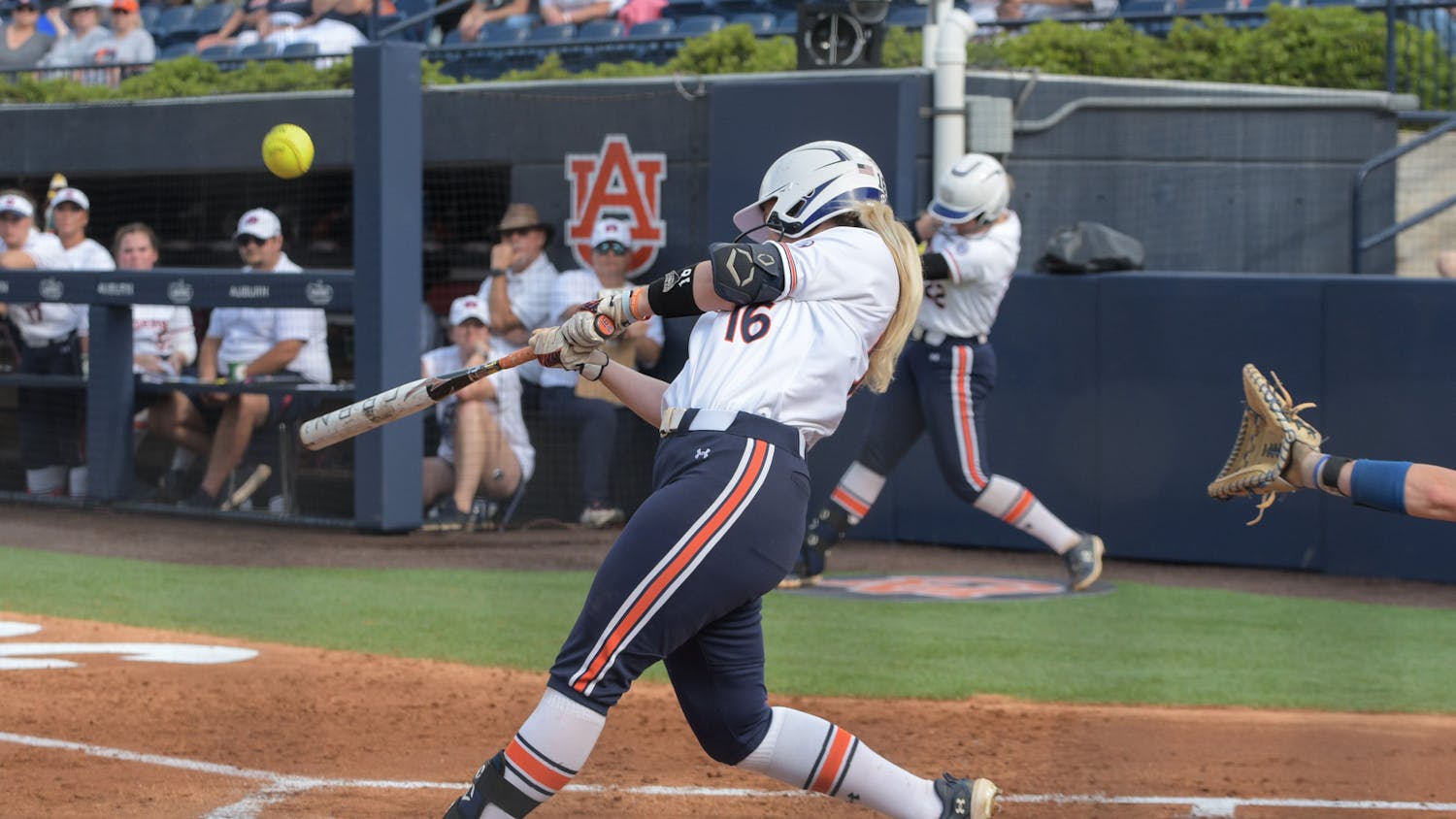Embattled Alabama House Speaker returned to the stand today in his own defense. Under questioning by defense attorney David McKnight, Hubbard told the jury he would have made the same requests of his "friends" for investments in his Auburn-based business even if he was not speaker.
Hubbard maintained his innocence and defended his decisions while on the stand Wednesday. He said he was "absolutely" not guilty of any of the charges and "never" intended to violate the law.
According to the charges by the 2014 Lee County Grand Jury, Hubbard illegally solicited investments from four prominent businessmen for his struggling Auburn printing business Craftmaster Printers.
According to Craftmaster president Barry Whatley, Hubbard recruited eight of 10 total investors, each of which provided $150,000 capital to help the company pay off more than $8.8 million in debt accumulated by the previous owner.
Hubbard is accused by the prosecution of directing four of the 8 investors by using the mantel of his office as House speaker and Alabama Republican Party chairman.
All of the men he asked for investments — including Jimmy Rane, president of Great Southern Wood and the richest man in Alabama; Robert Burton, president of Hoar Construction; Will Brooke, board member of the Business Council of Alabama; and James Holbrook from Sterne Agee Inc. — were close friends of his, according to his testimony.
The prosecution said they were also principals — or people who employ lobbyists — and their investments were legal things of value. Soliciting or accepting a thing of value from a lobbyist or principal is illegal for public officials.
Hubbard said the men invested in his company because it was a good business, worthy of keeping afloat. Hubbard even referred to Rane as a "great friend and great American," and said he met him in 1998 before he was ever elected Speaker.
Hubbard faces 23 counts of violating the state's ethics codes. A conviction on any of the 23 counts could place Hubbard in a state penitentiary for up to 20 years, or he could face a $30,000 fine per conviction.
Deputy Attorney General and Special Prosecutor Matt Hart led a combative cross-examination of Hubbard for the prosecution today. Hubbard repeatedly tried to give longer explanations, and Hart cut him off every time.
"I'm going to direct you (Hubbard) — or request your Honor to direct the defendant — to only give yes or no answers," Hart asked.
More than a half hour of the testimony today revolved around Hubbard's relationship with former Alabama Gov. Bob Riley. Hubbard is accused of illegally soliciting Riley for help obtaining new clients for Auburn Network Inc.
Hubbard repeated "my friend Bob Riley" numerous times when Hart would say "your friend, the lobbyist." The two sparred over what Hubbard's relationship with Riley exactly was. Hubbard repeatedly referred to Riley as a "father figure," both in testimony today and emails submitted for evidence.
As with the investments into Craftmaster, the jury must decide in deliberations what the legal definition of a friend is. According to the Alabama code of ethics, anything given by a friend from a place of friendship — not because of his office — cannot be considered a thing of value.
The defense is relying on that language, or what they are referring to as "the friendship exemption." If the defense can show the men invested in the company because of their friendship with Hubbard, it is possible the jury would be compelled to acquit him on those charges.
But Hubbard's testimony today conflicted with prior testimony by Dax Swatek, a Montgomery lobbyist. Last week, Swatek testified that Hubbard asked him to invest in Craftmasters. Today, Hubbard testified he never solicited Swatek to invest.
McKnight showed a three-ring binder with a presentation Hubbard made to all of the men he wanted to invest in his company. Hubbard said he made presentations to all the men he is charged with illegally accepting the investments from — all except for Swatek.
"I've never given anything like that [binder] or made a presentation to Dax Swatek," Hubbard said today.
Swatek's charge is the only charge of 23 Hubbard and his team have denied outright. His defense maintains the remaining 22 charges were not actually illegal — they were covered by the friendship exemption outlined in the state's ethics law.

The contracts
According to Hubbard, Edgenuity and Capitol Cups sought him out for consulting help because of his experience in media and sports.
"I told [Edgenuity] that I was friends with Tommy Tuberville and that I helped him with his TV show," Hubbard said about a meeting in San Francisco at a Jeb Bush education reform conference. Hubbard said an executive of the company, Mike Humphrey, came up to him at the conference.
He said they bonded over NCAA football.
Hubbard said Edgenuity, an education technology firm, needed help getting approvals with the NCAA, and his experience and connections he made while working on two Heisman campaigns made him attractive to the company.
"They had a pretty big issue dealing with the NCAA where they were not approved through the NCAA for the clearinghouse…," Hubbard said. "They were having some problems down in Miami, I believe. I called my friend. ... I got them in contact with the right people. It was very successful for them monetarily."
The prosecution claims Hubbard used the mantel of his office as Alabama House Speaker to obtain the contract, which paid him more than $7,000 a month. A check from the company to Hubbard's Auburn Network Inc. even includes a memo line that reads "lobbying services."
From 2012 to 2014, Hubbard received an average of $30,000 from four different trade organizations, businesses and cooperatives: American Pharmacy Cooperative Inc., The Southeast Alabama Gas District, Edgenuity Inc. and CV Holdings LLC.
"I was prohibited from doing anything in the state of Alabama, and that meant that I could only perform duties for them outside of the state of Alabama," Hubbard said about the contract he had with the pharmacy cooperative APCI.
The prosecution maintains Hubbard voted on the 2014 Fiscal Year General Fund budget, despite the budget containing several lines of pro-APCI language. The language would have forced the state's Medicaid agency to "analyze" a pharmacy benefits manager.
Third-party pharmacy benefits managers handle the purchasing and management of pharmaceuticals for the state's Medicaid recipients.
The language in the bill would have made APCI — a company paying Hubbard $5,000 a month, which represented the largest group of small and independent pharmacies in the state — the only cooperative eligible for consideration because it was the only group that met the requirements set forth in the language.
Hubbard does not deny voting on the language, but his defense maintains the language is a tiny portion of a "100-plus-page bill." He said he had to vote on it because it determined the appropriations for all of the state's agencies.
"It was about making sure the mom and pop businesses didn't get cut out of [the Medicaid business]," Hubbard said.
He also said he never saw the exact pro-APCI language until only shortly before the vote, but prior to seeing the final language he thought it was meant to help the "mom and pop" pharmacies. He said he didn't know it was specific to APCI.
"You asked Mr. Blades what you should do, and he said abstain or do nothing," Hart said during cross-examination. "And you told him you had to vote on your own budget or it would raise too many red flags."
Hubbard said he didn't believe the vote was a conflict because it didn't "force" Medicaid to do anything, the language didn't specifically mention APCI, and all of his work for APCI took place outside of the state.
"I don't recall saying it would raise too many red flags," Hubbard said. "I recall saying I had to vote on the General Fund Budget. And [Blades] didn't know any of the specifics of my contract with APCI at the time."
During the first week of the trial, the prosecution called Hubbard's former chief of staff Josh Blades to testify. Blades said he specifically told Hubbard voting on the language would be a conflict.
"[Hubbard] said it would raise too many red flags [if he didn't vote]," Blades said. "I was upset that I didn't know about the contract [that Hubbard had with APCI]. I was upset because I played a role in what had transpired that day, and I played a role in what had transpired previously. I was afraid that there could be legal implications for what happened. I was afraid Mike may end up in some sort of legal trouble after all of this transpired."
Hubbard, Blades and other witnesses called by the prosecution and cross-examined by the defense during the first week of the trial all testified Hubbard did everything he could to have the pro-APCI language removed from the bill before its final version was passed by the Senate.
The original version of the bill was passed by the Senate and then sent to the House — where the pro-APCI language was added. Testimony conflicted about who exactly had the language added to the bill, but most agreed that former state Rep. Greg Wren originated the language.
Hubbard maintains he never green-lighted the language himself.
Once the pro-APCI language passed the House with the help of Hubbard's vote, Hubbard agreed to help Medicaid officials have the language removed. According to former public health official Don Williamson, Hubbard appointed members he suggested to have the language removed in conference committee.
The trial will continue tomorrow at 9 a.m. when Hubbard will return to the stand.
Do you like this story? The Plainsman doesn't accept money from tuition or student fees, and we don't charge a subscription fee. But you can donate to support The Plainsman.



